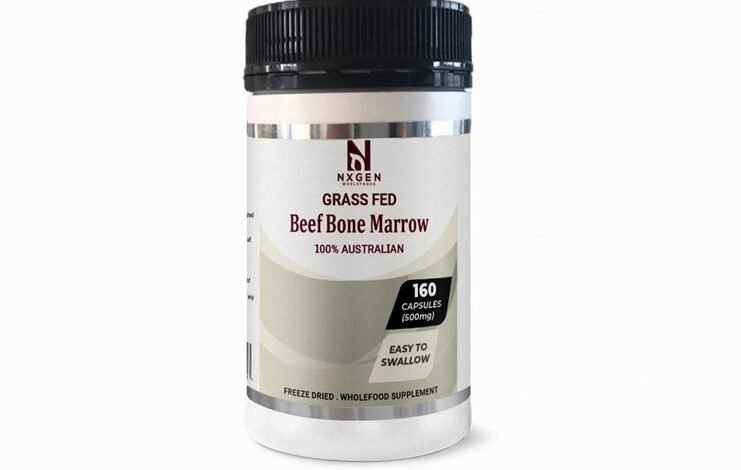Understanding the Health Benefits of Collagen Peptides

In a quest for eternal youth and vitality, humans have explored a myriad of avenues — from complex skin-care routines and diets to collagen peptides. Claims have been made, derived from bovine sources, primarily for their emergence as healthy manufactured supplements.
If you are new to the world of collagen peptides and want more in-depth information, this guide will present a comprehensive compilation which includes what you need to know about their composition, where they come from, and scientific studies on the health-enhancing properties of collagen peptides.
What Are Collagen Peptides?
The most prevalent protein in the human body is collagen. It is a fundamental component of the bones, muscles, tendons, ligaments, skin, and so on. And this effect of giving structural support, flexibility and strength to those tissues bridges to coordinated whole systems. Essentially, it helps hold the living creature together.
The types of collagen referred to as peptides include hydrolyzed collagen or collagen hydrolysate. This is a special form of collagen after much enzymatic or other processing has reduced it to its smallest particle size, making it more readily absorbed and digested by the body.
Composition and Nutritional Profile
Collagen peptides provide a rich supply of amino acids, particularly glycine, proline, and hydroxyproline, which are necessary for forming most of the organs and tissues within our body. In addition, they contain a higher content than other protein sources of some of the collagen specific amino acids not found in such abundance elsewhere, such as hydroxylysine.
As regards nutritional content, collagen peptides typically have a low caloric value but are carbohydrate and fat-free. And being gluten-free, they suit people with gluten sensitivities or celiac disease.
Sources of Collagen Peptides
Collagen peptides can be derived from various sources, primarily animal-based and some plant-based. Here are some common sources:
- Bovine Collagen Peptides: Cow hides are where most collagen peptides, including bovine collagen, sometimes known as beef collagen, are found. Following the extraction of collagen from cow hides, collagen peptides are used in a variety of healthy meals, cosmetics, and dietary supplements.
- Fish Collagen: This group of collagen peptides is mainly carried by fish, especially their skin and scales. People with diet preferences or constraints, such as anyone who abides by a halal or kosher regimen or someone who can’t eat beef products due to allergy or belief, usually choose fish collagen peptides. Although fish isn’t all that allergenic, it may be contaminated with other things.
- Chicken Collagen: Among hens’ skin and cartilage are excellent sources of collagen peptides. Collagen peptides from chickens often appear in nutritional supplements and cosmetic items, and they may have certain advantages over those obtained from cows.
- Porcine (pig) Hide: Porcine skin and tissues form possibly an excellent source of collagen peptides. Porcine collagen peptides could be used in cosmetic products, health foods, and biological experiments.
- Marine Collagen Peptides: Due to their high bioavailability as a price-effective bioresource, these peptides are getting more and more popular. Fish like cod, tilapia, and salmon make up marine collagen; this is frequently present in dietary supplements and cosmetics.
- Plant-based Collagen Substitutes: Similar to how animal products are the primary source of collagen in an individual’s natural metabolism, plant-based alternatives now exist that promise to provide the same results. Also, such substitutes in many instances contain nutrients like amino acids and vitamins needed by human bodies so as to help the body produce collagen.
Health Benefits of Collagen Peptides
Because they may offer health advantages, collagen peptides have become more and more popular in recent years. These are a few of the most often mentioned advantages:
- Beautifies Skin: Collagen lends skin its resilience, strength, and moisture content. It is a key foundation of the skin. Studies have shown that by adding collagen peptide supplements, wrinkles fall in number for a smoother and more elastic skin appearance that bounces back.
- Promotes Joint Health: To keep joints flexible and able to function normally, collagen peptides are indispensable. Collagen production decreases with age, resulting in joint discomfort and decreased flexibility. With collagen peptide supplements, people may get back their joint function and be rid of joint pain.
- Muscle and Bone Restoration: Collagen vitalizes muscles and strengthens bones. Collagen peptides may increase bone density, reduce the chance of bone fracture, and induce muscle growth and recovery.
- Digestive Health: Collagen contains glycine and glutamine, two amino acids that are helpful to the digestive tract. They can alleviate bad digestion, prompting improved nutrient absorption; relieve inflammation, helping individuals with leaky guts. Gut health is essential, and grass fed collagen peptides can contribute to maintaining a healthy gut lining, ensuring your digestive system functions optimally.
- Increases Hair and Nail Growth: Hair and nails need collagen in order to avoid becoming thin structures which are easily broken. In surveys, people reported that after starting to use collagen peptide supplements, their hair was thicker, less brittle and grew more rapidly.
Getting more hard bones and muscles, improved skin elasticity, and a healthy set of articulations are just a few of the many benefits collagen peptides can bring. The collagen peptides mainly come from chicken bone and have a high amino acid content that provides for the making and repair of collagen. By introducing beef collagen and collagen peptides into your daily routine, you can remain in good health and high spirits and look younger than your age with healthy gut. Embrace collagen peptides, let the little spring of youth inside you come out.


